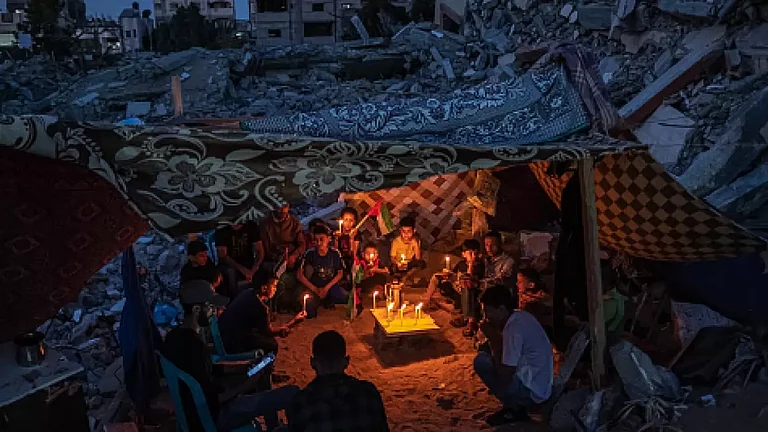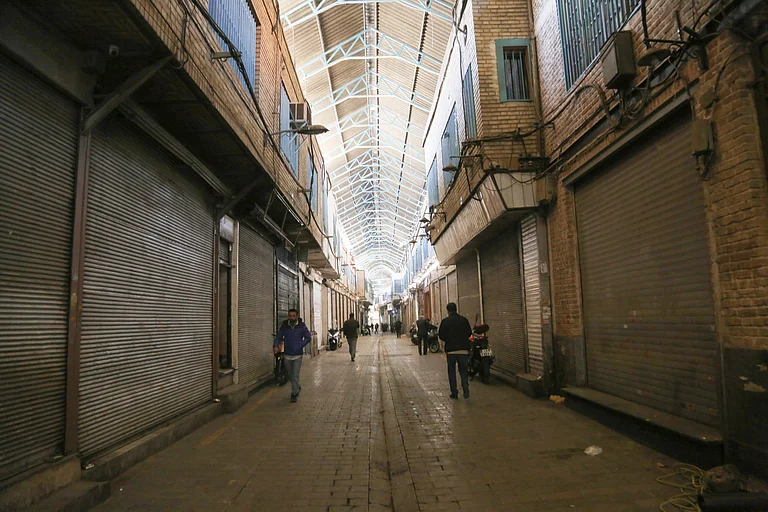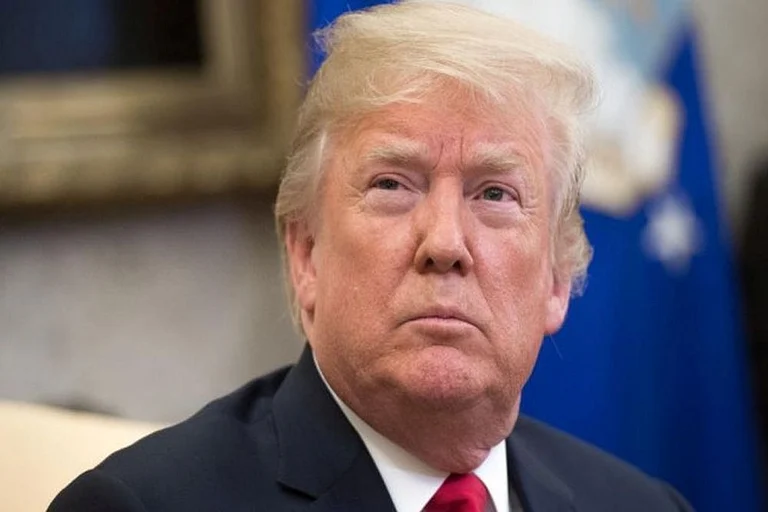US Justice Department on Tuesday announced charges against six senior leaders of Palestinian militant outfit Hamas, which on October 7 last year carried out a surprise rampage into Israeli territory from all directions and began what it called ‘Operation Al Aqsa Flood’ against the country, sparking the deadliest conflict between the two sides. The charges announced by the US include terrorism and conspiracy to kill Americans.
This move follows the recent deaths of six hostages, including an Israeli-American citizen, in the Gaza Strip. The US government is taking a strong stance against the militant group amid ongoing violence.
Israel’s Plans For Food Distribution In Gaza
Israeli Prime Minister Benjamin Netanyahu unveiled plans on Wednesday to take control of food distribution in the Gaza Strip. Netanyahu accused Hamas of commandeering humanitarian aid and exploiting it for their own benefit by charging inflated prices to Gaza’s residents. He argued that by taking control of food distribution, Israel aims to prevent Hamas from using aid as a tool to maintain their power and influence in the region.
Netanyahu clarified that Israel does not intend to govern Gaza but wants to prevent Hamas from benefiting from the aid meant for civilians. The exact details of how this control will be implemented remain uncertain. It is not clear whether Israeli forces will directly manage aid distribution or if international organisations will continue their work under Israeli supervision.
Israel Open To Negotiating Gaza-Egypt Border
Israeli Strategic Affairs Minister Ron Dermer announced that Israel is open to negotiating control over the Gaza-Egypt border area, known as the Philadelphi Corridor, after the ongoing war with Hamas concludes. Dermer explained that while Israel is willing to discuss the border's future, it insists on maintaining a military presence to prevent Hamas from re-arming during a proposed truce.
The Philadelphi Corridor, a 14-kilometre strip along the Gaza-Egypt border, is a critical point of contention in ceasefire negotiations. The US, Qatar, and Egypt have been trying to mediate a ceasefire between Israel and Hamas for several months, but no agreement has been reached so far.
Dermer emphasised that Israel's government is eager to reach a deal but will not agree to terms that could jeopardise the security of its citizens. The negotiations are complicated by various regional disputes and the ongoing conflict's impact on international relations.
Norway’s Wealth Fund Considers Excluding More Israeli Companies
Norway’s ethics council for its $1.7-trillion sovereign wealth fund is considering expanding the list of Israeli companies excluded from its investments. The council is reviewing its holdings in response to the ongoing conflict in Gaza and Israel’s military actions in the West Bank.
The fund, managed by Norges Bank Investment Management (NBIM), currently holds shares in approximately 77 Israeli companies, valued at about $1.5 billion. The ethics council has previously excluded nine companies due to their activities in the West Bank, and it may recommend removing additional companies from its investment portfolio.
The council’s review is influenced by a recent International Court of Justice (ICJ) opinion, which criticised Israel’s occupation of Palestinian territories and called for compensation for displaced Palestinians. The ethics council's recommendations, if adopted, could lead to further exclusions of Israeli firms from the fund.
Reactions And Ongoing Conflicts
The conflict has elicited varied responses from the international community. Gulf countries, including Saudi Arabia, Qatar, and the UAE, have criticised Israel’s stance on the Gaza border and expressed solidarity with Egypt. The UAE’s Ministry of Foreign Affairs has called for an end to the escalation and cautioned against actions that could further destabilise the region.
In contrast, Egypt has denied allegations of arms smuggling to Hamas and has maintained that it is committed to preventing such activities. The ongoing conflict continues to be a divisive issue in global politics, with significant implications for regional stability and international relations.
Successful Polio Vaccination Campaign In Gaza
The World Health Organization (WHO) reported that the first phase of a major polio vaccination campaign in Gaza has been completed successfully. From September 1 to 3, nearly 200,000 children in central Gaza received their initial dose of the vaccine. This effort comes after the first polio case in 25 years was confirmed, amid ongoing conflict and deteriorating living conditions in the region.
The campaign, which aims to vaccinate over 640,000 children, saw the participation of over 2,200 health workers. Future phases will focus on southern and northern Gaza, with a follow-up vaccination planned in about four weeks. The WHO emphasizes the need for at least 90% coverage to control the spread of polio both within Gaza and to neighboring areas.


























